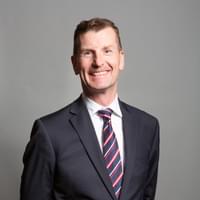
Now they see us: how culture is reflecting black activism.
The media's recent shift from diversity to inclusivity is a societal change that will define the future, and protests are at the heart of this transformation, says Ella Robertson.
It's 007, but not as we know it. Daniel Craig may still be James Bond but it's a black woman who is stealing the spotlight following widely circulated reports that Lashana Lynch is set to take over the iconic codename in the 25th Bond film.
Responses have been mixed, with most praising the progressive decision to hand such an iconic title to a woman of colour, but some have criticised screenwriter Phoebe Waller-Bridge for 'virtue signalling' – a similar accusation thrown at the Oscars for its nominations of all-black superhero film Black Panther which was the first film in the Marvel franchise to win an Academy Award.
These dissenting voices echoed those last month when it was revealed that Ariel – a mermaid – would be played by a black woman, Halle Bailey, in the live action remake of The Little Mermaid. Remember a similar outcry when it was first revealed that Noma Dumezweni was to play Hermione Granger in the West End production of Harry Potter and the Cursed Child? Even the casting of Rue as an black little girl in The Hunger Games was criticised, despite the original books explicitly describing the character as black.
In the minds of the intolerant, James Bond, a superhero, a mermaid, or a witch – all of which literally do not exist – have more agency over how they are represented than minorities.
Classically, minorities and women are portrayed in media as extras to white cis-male groups – the one black friend, the damsel in distress, the gay best friend. Intolerant people will happily tolerate one-dimensional portrayals of minorities, it is when they become three-dimensional that there is a reaction.
Ensuring that people of colour, women, LGBTQ people and other minorities are truly represented on-screen and stage is such an important battle.
The continuing shift to a more inclusive media comes in no small part thanks to the efforts of activists who have fought to give women and minorities a voice. A narrative seems to have taken hold that protests are like talking to brick walls, which can be the case: the estimated million Brits who marched against the Iraq War in 2003 failed to change policy there, and as yet similar numbers marching for a 'People's Vote' on Brexit have similarly fallen flat.
But even if those responsible for policy are deaf to or determined to ignore protestors in the street, messages on placards may take deeper root in society.
As leading mobiliser of Black Lives Matter, DeRay Mckesson, says in my new book, How to Make a Difference: The Definitive Guide From The World's Most Effective Activists: "Protest is about telling the truth in public… protest isn't the answer, but protest creates space for the answer." Through causing people to question the world they inherently accept, protest allows for change to happen at a faster pace.
The movement itself will not find the answer, but by spotlighting the everyday systematic issues faced by black people, it is creating a bigger demand for culture to explore those stories.
Similarly, the emergence of #MeToo not only exposed Hollywood sexual abuse, but provided a positive platform for women to stand up and say that their representation and treatment has to be better, allowing for a greater number of women to take on senior production roles.
It's a long way off being perfect – no women were nominated for Best Director at the 2019 Oscars, a category only five women have been nominated for in history – but whether it's Captain Marvel or Wonder Woman, Ocean's 8 or Rogue One: A Star Wars Story, women are showing they can take the lead in major franchises and have the same box office success as men.
I think it can be seriously underestimated just how important these campaigns are for society, even if their messages are outright rejected or sneered at by political leaders and right-wing commentators.
Protests in the real world speak truth about repressed stories, which then find their way onto the screen where they can be told by the people who live and breathe these realities. In turn these feed back into wider society, where people have their eyes opened to new perspectives.
When They See Us, a new Netflix docudrama by Ava DuVernay tells the story of the so-called 'Central Park Five' – five black teenagers falsely accused, arrested, convicted and imprisoned for the rape and brutal assault of a 28-year-old white jogger in 1989.
Their convictions were vacated after the real rapist confessed in 2002, and the five have since become a symbol of police attitudes towards black people, but despite their iconic status in the American zeitgeist, until DuVernay's series, their story had not been told from the five's perspectives.
DuVernay says she chose to name it When They See Us rather than 'The Central Park Five' because she wanted people to see the individuals involved in the case for who they really are, not as a faceless collective.
I have no doubt that without Black Lives Matter and wider efforts to tell black stories from black standpoints, it is not a series that would have been made – certainly not with an almost all black cast, a black woman writing and directing, and with the full blessing of the five black subjects.
It is not just new material that is being produced: older books and poetry by Malorie Blackman and Benjamin Zephaniah have recently been added to the GCSE curriculum. Embedding these texts in our education system indicates that the new mainstream appreciation for diverse stories isn't just Hollywood virtue signalling, it's here to stay.
It may not be obvious to everyone but this move from diversity to inclusivity in media is a societal change that will define the future, and protests are at the heart of this transformation. They are creating space for answers to emerge, for new narratives to breathe, and for the repressed to feel seen.







